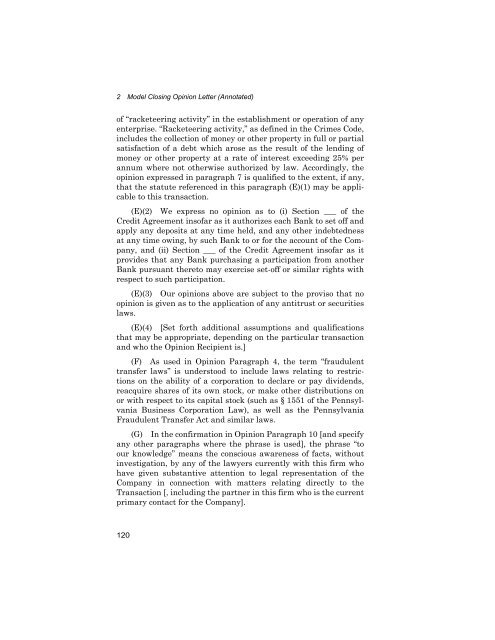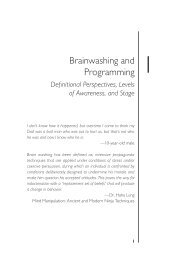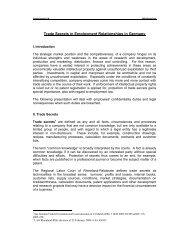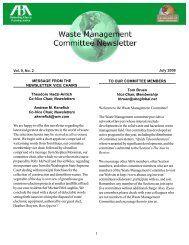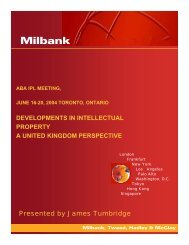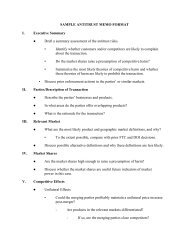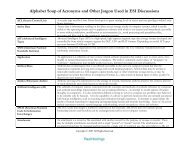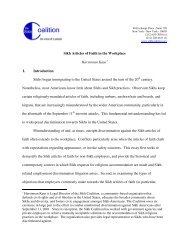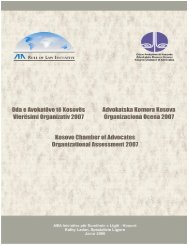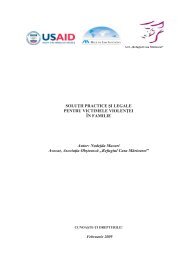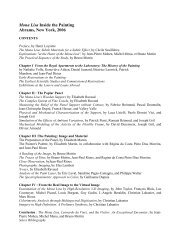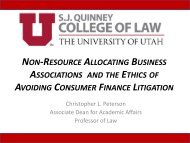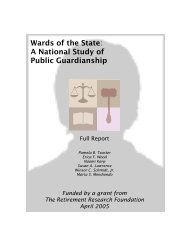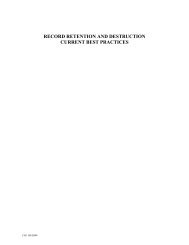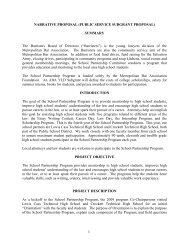Model Closing Opinion Letter (Annotated) - American Bar Association
Model Closing Opinion Letter (Annotated) - American Bar Association
Model Closing Opinion Letter (Annotated) - American Bar Association
You also want an ePaper? Increase the reach of your titles
YUMPU automatically turns print PDFs into web optimized ePapers that Google loves.
2 <strong>Model</strong> <strong>Closing</strong> <strong>Opinion</strong> <strong>Letter</strong> (<strong>Annotated</strong>)<br />
of “racketeering activity” in the establishment or operation of any<br />
enterprise. “Racketeering activity,” as defined in the Crimes Code,<br />
includes the collection of money or other property in full or partial<br />
satisfaction of a debt which arose as the result of the lending of<br />
money or other property at a rate of interest exceeding 25% per<br />
annum where not otherwise authorized by law. Accordingly, the<br />
opinion expressed in paragraph 7 is qualified to the extent, if any,<br />
that the statute referenced in this paragraph (E)(1) may be applicable<br />
to this transaction.<br />
(E)(2) We express no opinion as to (i) Section ___ of the<br />
Credit Agreement insofar as it authorizes each Bank to set off and<br />
apply any deposits at any time held, and any other indebtedness<br />
at any time owing, by such Bank to or for the account of the Company,<br />
and (ii) Section ___ of the Credit Agreement insofar as it<br />
provides that any Bank purchasing a participation from another<br />
Bank pursuant thereto may exercise set-off or similar rights with<br />
respect to such participation.<br />
(E)(3) Our opinions above are subject to the proviso that no<br />
opinion is given as to the application of any antitrust or securities<br />
laws.<br />
(E)(4) [Set forth additional assumptions and qualifications<br />
that may be appropriate, depending on the particular transaction<br />
and who the <strong>Opinion</strong> Recipient is.]<br />
(F) As used in <strong>Opinion</strong> Paragraph 4, the term “fraudulent<br />
transfer laws” is understood to include laws relating to restrictions<br />
on the ability of a corporation to declare or pay dividends,<br />
reacquire shares of its own stock, or make other distributions on<br />
or with respect to its capital stock (such as § 1551 of the Pennsylvania<br />
Business Corporation Law), as well as the Pennsylvania<br />
Fraudulent Transfer Act and similar laws.<br />
(G) In the confirmation in <strong>Opinion</strong> Paragraph 10 [and specify<br />
any other paragraphs where the phrase is used], the phrase “to<br />
our knowledge” means the conscious awareness of facts, without<br />
investigation, by any of the lawyers currently with this firm who<br />
have given substantive attention to legal representation of the<br />
Company in connection with matters relating directly to the<br />
Transaction [, including the partner in this firm who is the current<br />
primary contact for the Company].<br />
120


